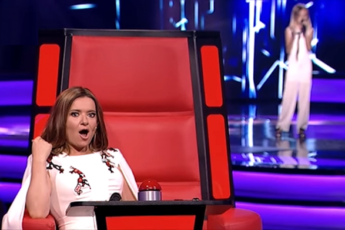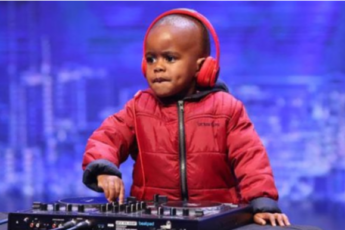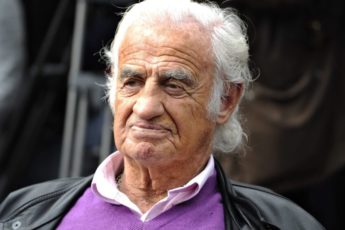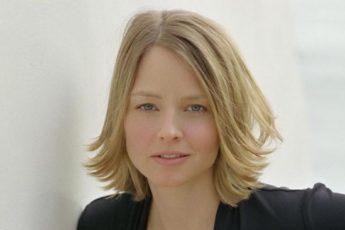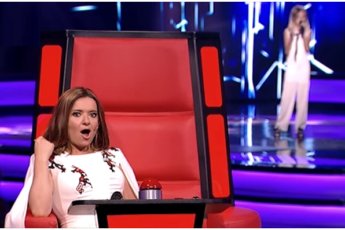“It’s funny how, as we go through life, what we previously believed was important fades into insignificance.” I used to believe that being successful in my chosen profession was all that counted. To be in every talent pool and to always obtain a huge wage raise. To be able to drive a luxury car and live in a nice home. That was my 20-year-old self expressing herself. Now, I write this as a 40-year-old who has gone on an incredible trip and has discovered that LOVE is all that matters. I love myself, my children, and my family. I have a lot of love for my passion projects as well as this land we call home.

When I was 33 years old, my perspective on what was important shifted substantially. I was diagnosed with severe stage 3 breast cancer at the age of 33, a diagnosis that set in motion a chain of events I could never have predicted but that has got me to where I am now. Peace, love, and thankfulness can all be found here. In August 2013, I received the news that no one likes to hear: ‘I’m sorry Kreena, you have Breast Cancer.’ After tolerating a nipple inversion on my left breast for weeks, I finally went to my doctor, who referred me to a breast clinic. After being scanned, mammogrammed, biopsied, pushed, and prodded, the words that would change my life forever finally came.
I was a healthy young woman. I ate healthily, got enough exercise, never smoked, and drank alcohol in moderation. So, when the diagnosis came, I was furious at first. How could anything like this happen to me? How could life possibly be so unjust? The treatment plan followed, which included a mastectomy, chemotherapy, and radiotherapy. I had initially questioned if I could keep my illness hidden if I could get by without letting the rest of the world know what I was going through. I am an Indian woman. Immigrant parents’ daughter. I’d spent most of my life attempting to live up to the expectations of others. Academic success, finding the proper life partner, and thriving in a career that would provide a level of financial security that my parents had never experienced.
I’d done it all, checked all the boxes, and made everyone proud of me. How could I tell them this if that’s the case? Tell them I’m not as unstoppable as I once believed and that everything is about to change? That my 5-year plan was in desperate need of revision, and that all I knew and had worked for was about to be tossed out with the trash.
There is still a stigma associated with cancer in my town. A belief that having such a disease makes you a bad person. Some people believe that cancer is the result of ill deeds committed in previous lifetimes. A pity party is ready to exchange experiences of pain and hardship among those who embrace cancer for what it is — a sickness that may touch anyone. I wanted to stay away from it all. I wanted to avoid the sympathetic gossips that would gather at my door, as well as the feeling of failure and disappointment. I didn’t want to have to explain everything that was occurring to me all the time.

I just wanted to get through therapy, cope with whatever came my way and get back to normal. Back to work, back to routine, back to crossing items off my to-do list before turning 40. However, as the weeks progressed, it became clear that this was not going to be achievable. This diagnosis was more than a blip in my five-year plan; it was more of a “tear up that plan and start again” scenario.
I hid for the first few months of my treatment. Only a limited group of close friends and family members were involved in my care and were aware of all that was going on in my life. I struggled to ‘embrace’ chemo as my consultant had advised; I plastered a smile on for those around me, but I lay awake at night with tears streaming down my face, wondering what I had done to deserve this.
I joined Facebook groups for young women with breast cancer and discovered a tribe of women who, although never having met in person, appeared to understand precisely what I was going through. We’d chat about our anxieties and frustrations together. We’d discuss whether we’d live or die, as well as our concerns, agony, and side effects. And when things got really bad, we’d be there for each other, acknowledging the stress and offering support where we could. When I was around by others who had cancer or who were helping me treat my cancer, I always felt safe. There was no need for the facade with them. They were well aware of the effects of this condition on the mind and body, so there was no need to shield them from the truth.
A member of my team called me one day when I was in the hospital for treatment. They asked whether I would be interested in participating in a campaign for a charity that assisted patients with cancer’s visual side effects. I was nervous; I hadn’t told many people about my sickness and wasn’t sure if I could participate in something so public. But something inside me urged me to go for it, whispering that it was time for a change, that it was time to tell my stories. To free me from the stigmas that were enslaving me. To raise awareness and give meaning to this condition.
I lost all of the hair from my head, torso, eyelashes, and eyebrows over the next three months. I had lost a lot of myself, my identity, and my strength in the process. But I mustered the guts to participate in this campaign. LookGoodFeelBetter took me under their wing. I was gently given a platform to speak my tale and made to feel entire again. I never looked back after that, and I suppose it was the stepping stone that led me to where I am now, writing this post you’re reading now.

My active oncology treatment ended on June 20, 2014. By this point I was bald from treatment, my nails had started to fall off, I had only one breast, I was in a medical menopause and carrying burns from my radiotherapy treatment. I was broken in many ways, physically and mentally. Stuck in the middle of who I once was and who I was slowly evolving into, those moments after treatment ended were so hard to navigate. Struggling to fit back into society but desperately seeking normality once again.
Time proved a healer for me, time gave me space to re-evaluate, to reassess all that actually mattered to me. To put myself at the center of my thoughts and to rebuild a world that revolved around me; the wonderful, resilient human that I was. In time, I learned self love. I spent much of the next 12 to 18 months looking forward. I contemplated what I wanted my future to look like, and in every scenario, I saw a family.
Two weeks prior to beginning chemotherapy, I went through an ‘urgent’ IVF process. It was such a surreal experience, creating the beginnings of new life while simultaneously fearing the longevity of my own. It didn’t feel like a hope-filled process; in fact, IVF for me very much felt like part of my oncology treatment. Fortunately we created 12 tiny embryos, my insurance policy to parenthood that were frozen in time.
In the summer of 2016, having recovered from treatment and a large reconstructive surgery, my husband and I took a holiday to Vancouver. It was set to be two weeks away to celebrate new beginnings, to finally put the chaos and disruption of the past three years behind us. Sadly, we didn’t quite get that. I began to feel unwell within hours of landing in Vancouver. After a couple of days of ignoring the symptoms, I began to find it difficult to breathe. As time passed I found myself gasping for air, coughing profusely and experiencing dizzy spells.
After a series of investigations at a small university hospital, I was transferred to Vancouver General Hospital by ambulance. I had begun to slip out of consciousness and much of what happened that day remains a blur. I was held in A&E while investigations were carried out. My dependence on oxygen was high. I was wearing equipment to help me breathe and every machine monitoring me was beeping red and out of range. Team after team visited my bedside, each searching for answers, each piercing my skin with needle after needle, cannula after cannula. Hands, feet, wrists – there were lines coming out of them all. My husband sat beside me, holding my hand. I felt myself coming and going – one moment aware, the next totally lost. My chest was heavy and I felt like I was drowning.
A doctor came to my husband and explained the severity of my condition. ‘I’m afraid we are struggling to diagnose her. She is acutely unwell and we simply can’t stabilize her. It would be wise to prepare yourselves for the worst and to say your goodbyes; there’s a high chance this may not end well. If any family members need to be here, we suggest you call them and make arrangements.’ I couldn’t speak, but at the moment I was awake. I took in every word and felt my stomach turn. This couldn’t be where life ended, surely life couldn’t be so cruel.
The final team to visit my bedside was a team of cardiologists. While someone read my file, another person placed an ultrasound on my chest and a third person held my hand, came to my ear and said the following words: ‘Kreena, I know you are struggling to speak and to breathe. I won’t put any further stress on you. I simply want you to squeeze my hand if the answer to my next question is a yes… was the chemotherapy you had in 2013 red in color?’
I felt transported back to the chemo ward, my nurse sat in front of me. A recollection of our conversation… ‘Why is this drug in an opaque bag, why is there a huge toxic cross marker over the front of it? Why are you sitting here for the entire infusion?’ My nurse had told me all about this drug, about its red color, about its toxicity and the danger of it leaking out of the vein.
I squeezed the doctor’s hand as tightly as I could. In this same moment, the entire team gravitated towards the ultrasound machine and within seconds an alarm was rung, sirens sounded and I was rushed to Cardiac Intensive Care. I was diagnosed with acute heart failure with a heart function of around 6% and with lungs filled with fluid.
In ICU, the team worked to stabilize me. They explained the diagnosis. I couldn’t get the words ‘Heart Failure’ out of my head; how could anyone live with a heart that had failed? I acknowledged that this may indeed be the end of the road. My sister was on a flight over to Canada, and while I lay alone in my hospital bed, I began to pen letters to my loved ones. The distant goodbyes, sorry I couldn’t stay, I’ll see you on the other side. Just writing and recalling those moments now brings tears to my eyes, so close to losing it all before my life had even begun.

Then I felt a voice, a presence, something within me telling me not to give up. This wasn’t the end, I would find a way through. I held on to that message with every fiber of my being. I made it through 24 hours, then 48 hours, then a week, then 2 weeks. I made it out of ICU, eventually out of the hospital. Yes I was in a wheelchair, yes my heart was still very broken, but I was still finding a way to live.
After 8 long weeks in Vancouver, I was given the green light to fly home. The feeling of relief touching down at Heathrow was immense. I spent the next year working with my cardiologist on medicating my heart back to a good function and rehabilitating my body from a wheelchair to a normal life.
Between 2015 and 2016, I spent a lot of time researching my routes to parenthood. During my days in Vancouver, I met a lady online who would go on to be my surrogate. We spent months getting to know each other, and a year after our first conversations, we found ourselves at a fertility clinic ready for our embryo transfer. We had thawed the embryos my husband and I had created ahead of chemotherapy and transferred one of them into her.

A week later, we found out we were pregnant. Six weeks later, we saw our baby’s heartbeat on screen for the very first time. From there came the 12-week scan, then a 20-week scan, and finally a private 4d scan. As 2018 rolled in, we began to prepare ourselves for our new arrival, and in April 2018 my miracle daughter, Amaala, was born. I and my husband were present for her birth. We held each other as our baby girl entered the world and our hearts were filled with love and gratitude from the moment we met her.

Amaala brought joy, hope, and buckets of love into my life. She healed me in so many ways. Soon after Amaala was born, we knew we wanted to grow our family further. We were in a difficult position, we no longer had any embryos and I was unable to harvest further eggs of my own. We decided to look into egg donation and researched our options.

After months of research, we decided on known egg donation, a procedure that allows a couple to see an up-to-date image of their donor as an adult, as well as the chance for Intended Parents to meet their donor if they so desire. Knowing I wouldn’t be carrying this pregnancy or sharing genetics with any prospective donor-conceived child, something in my gut told me this was the path we needed to pursue, that meeting the lady who would complete our family was crucial to our journey. Telling my future child(ren) that mommy’s eggs and stomach were broken, but she met the person who assisted in their creation was extremely significant to me.
So, in August of this year, we traveled to Cyprus to see our well-known South African egg donor. Her physical characteristics, as well as her outlook on life and beliefs, were strikingly similar to mine. We met her, expressed our gratitude, and spent time with her. We generated our embryos and brought them home on ice as few as possible infants. Later that year, our first surrogate informed us that owing to changes in her own circumstances, she would be unable to assist us in expanding our family. The news came as a shock. It would take time to find a new surrogate, which we didn’t want to waste. It also meant that I had to let go of the romantic notion that my children would be born from the same womb as me.

Fortunately, and somewhat unexpectedly, I immediately found a new surrogate, and we have connected again by January 2020. We traveled to Cyprus in February 2020 for our frozen embryo transfer. We were both concerned and optimistic about the future. As international borders throughout the globe closed in March 2020, we were overjoyed to learn that we were pregnant again and that our wonderful surrogate had found a home for one of our embryos. We realized it wasn’t just one embryo that had been taken by the end of March 2021. We discovered we were having triplets after a two-embryo transfer! There are two sets of identical twins, as well as a singleton.

Our second pregnancy was very different to the first. We were in the midst of a pandemic, unable to meet our surrogate, and fearful of the effects of Covid on pregnant women. On August 23, 2020, our surrogate went into labor. We were only 30 weeks into our pregnancy. Our three triplet sons were born 10 weeks prematurely and taken to Neonatal ICU immediately. The very first time we met them, they were curled up in their incubators, doing everything they needed to do to stay alive. My heart will never forget their fragile bodies, tiny limbs, and endless wires; but at that moment I made a promise to them. To be there for them, for their every need. To be the Mother they deserved, to raise my boys to be Kings.


I write this piece in summer 2021. My Kings have grown into healthy and vibrant babies. Rolls of baby fat surrounding their bodies, piercing blue eyes watching my every move. Thirty little fingers, desperately grabbing hold of mommy at any opportunity. My daughter is three years old; the most incredible big sister and vibrant toddler. My family is complete. My heart is full. My future is bright.


Every single thing that matters to me is right here, within the four walls I call home. Life took me on the craziest adventure; it hit me with lows I could never have imagined, but then surrounded me with highs I could only have dreamt of. I take none of it for granted, for I know how easily the tides could have changed. My advice to anyone in struggling through adversity is to remember this: hold on, pain ends.”


